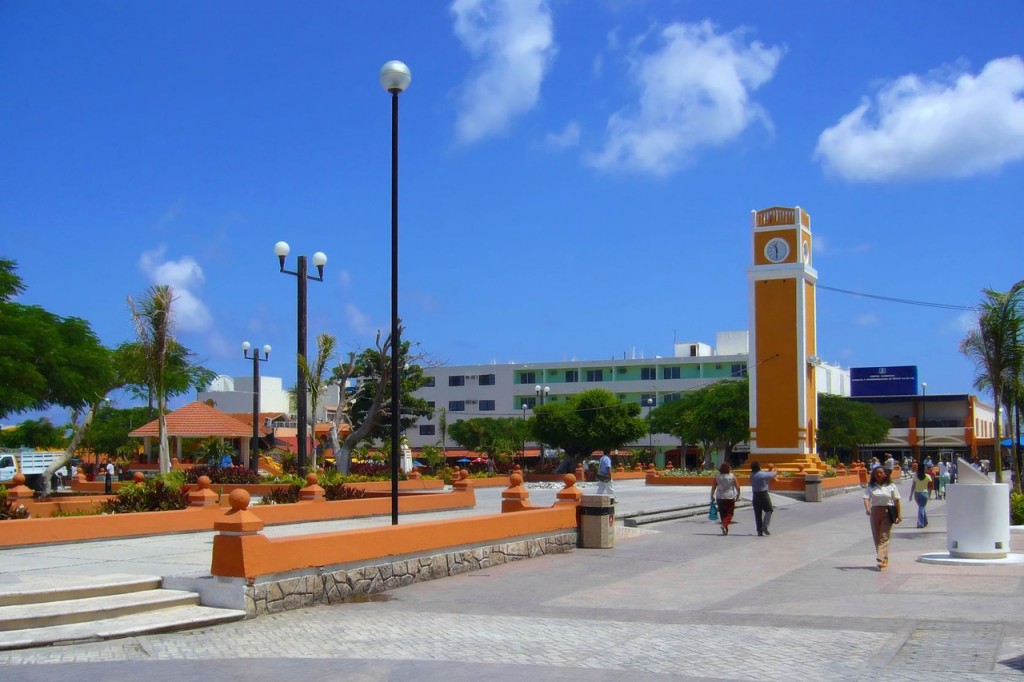Bring to Cancún and Cozumel what you would to any beach destination: light cotton clothing, hat, sunscreen, sunglasses, flip-flops, etc. Beach buffs should bring two or even three swimsuits, plus snorkel gear if you’ve got it. Water shoes come in handy wherever the beach is rocky, while tennis shoes and bug repellent are musts for the Maya ruins. Finally, it’s always smart to bring an extra pair of glasses or contacts, prescription medications, birth control, and a travel clock. If you do leave anything behind, no worries—there’s a Walmart in all the major cities.

A clocktower on Isla Cozumel. Photo © K. Photosky/123rf.
Considering weather, prices, and crowds, the best times to visit the Yucatán Peninsula are from late November to mid-December and from mid-January to early May. You’ll avoid the intense heat from June to August, the rain (and possible hurricanes) in September and October, and the crowds and high prices around the winter holidays.
The big caveats with those periods are spring break (March/April) and Semana Santa (the week before Easter), when American and Canadian students, and then Mexican tourists, turn out in force and prices spike temporarily.
Be aware that certain attractions are only available (or recommendable) during specific months, whether snorkeling with whale sharks (June-September) or visiting Chichén Itzá on the spring equinox. Even many year-round activities like sportfishing, kiteboarding, and bird-watching are better or worse according to the season.
American and Canadian travelers are required to have a valid passport to travel to and from Mexico. Tourist visas are issued upon entry; you technically are allowed up to 180 days, but agents often issue just 30 or 60 days. If you want to stay longer, request the time when you present your passport. To extend your visa, visit the immigration office in Cancún.
No special vaccines are required for travel to the Yucatán Peninsula, but it’s a good idea to be up-to-date on the standard travel immunizations, including hepatitis A, MMR (measles-mumps-rubella), tetanus-diphtheria, and typhoid.
Cancún International Airport (CUN) is far and away the most common and convenient entry point to the region. A handful of flights go directly to Cozumel or Chetumal, and there are plans (but nothing more) for a new airport outside Tulum; there also is an airport near Chichén Itzá, but it is used exclusively for charter flights. An excellent network of buses, shuttles, and ferries covers the entire region, though a rental car makes a world of difference in more remote areas.
Excerpted from the Twelfth Edition of Moon Cancún & Cozumel.